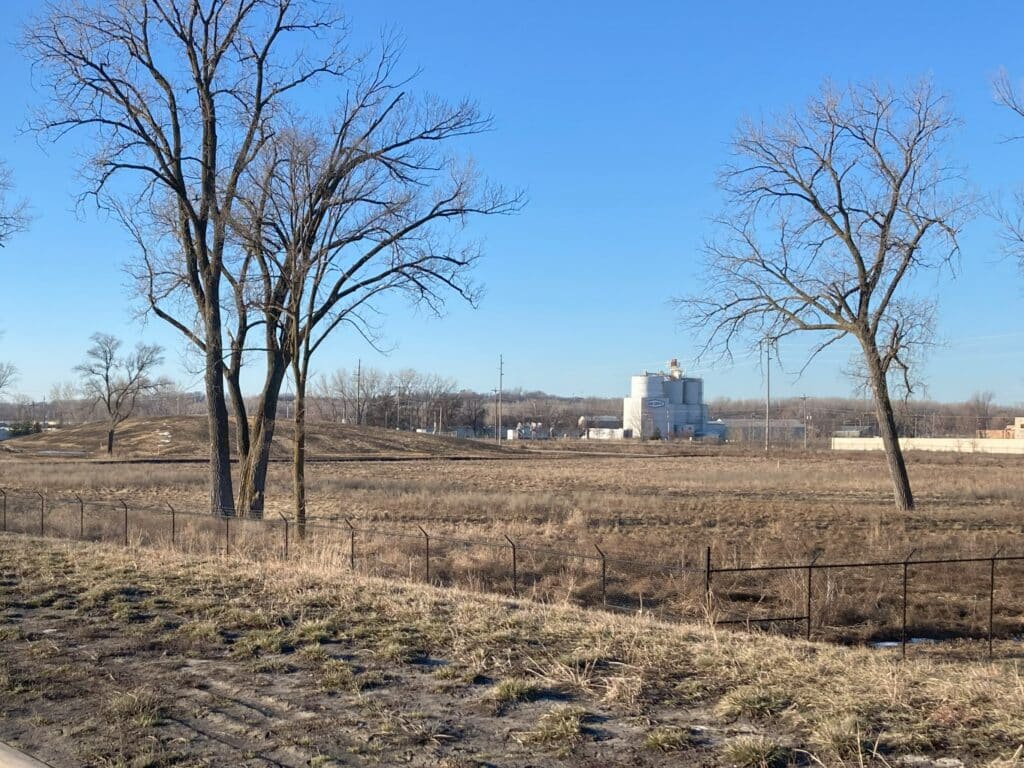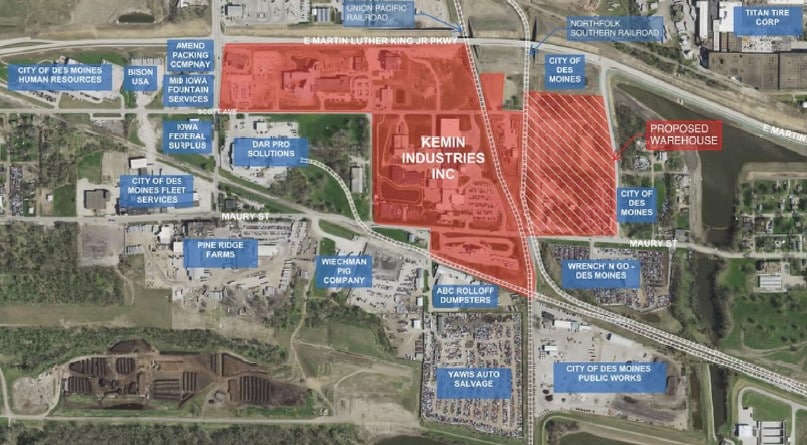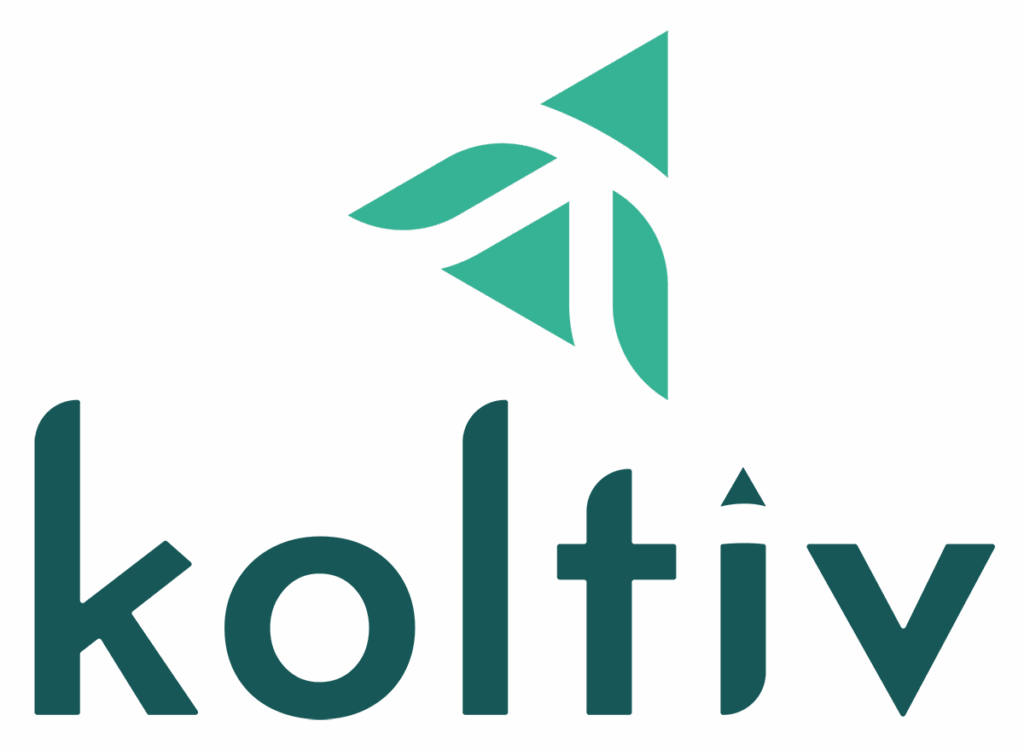Kemin plans $28 million expansion with addition of new warehouse
The warehouse will serve future expansions planned by the manufacturer

Kathy A. Bolten Feb 20, 2024 | 4:37 pm
3 min read time
682 wordsAll Latest News, Manufacturing, Real Estate and Development
Kemin Industries Inc., a global maker of specialty ingredients for humans and animals, is expanding its footprint in Des Moines with the addition of a $28 million warehouse at Southeast 23rd and Maury streets.
The new 321,500-square-foot facility will consolidate Kemin warehouses at eight other locations into one central site, as well as increase the company’s warehouse capacity for current production. The new warehouse will also support Kemin’s future manufacturing expansion plans.
“We have a few manufacturing projects in the pipeline, and we recognized the need to consolidate our warehouses, get this new one in place to be able to set the stage to really be able to grow our production,” said Matt Madison, Kemin’s global construction manager. “We’re out of capacity on our warehousing side now. The more decentralized it gets, the harder it is to control our inventory.”
R.W. and Mary Nelson founded Kemin Industries in Des Moines in 1961. The family-owned-and-operated company, whose headquarters is at 1900 Scott Ave., supplies over 500 specialty ingredients for industries that include human and animal health and nutrition, food and crop technologies, textile, biofuel, pet food, and animal vaccine.
Since 2017, Kemin has invested over $30 million in its headquarters facility, according to information provided by Des Moines’ Urban Design Review Board. Kemin has also built a $4.5 million application solutions facility; an $8 million control lab; and expanded a factory in a $20 million project. The company has also added a solar farm, which cost an estimated $1.5 million.
Future expansion plans include the addition of a fermentation facility for manufacturing enzymes and the renovation and expansion of a 30-year-old blending facility, according to information provided by the board.
The new warehouse will support those proposed projects, city officials said.
The announcement of the planned warehouse project comes within weeks of the city of Des Moines receiving a $34 million grant to complete the extension of Martin Luther King Jr. Parkway from 30th Street to Pleasant Hill. The extension is expected to create a more direct route from Des Moines to U.S. Highway 65.
The warehouse project “was driven by our internal needs” and not the extension of MLK Parkway, Madison said. However, trucks delivering products to and from Kemin will use MLK Parkway, he said. “Any improvements or ease of getting trucks in and out of the site will certainly be welcome.”
Construction of the new warehouse, which will be built with precast concrete, is expected to begin in April and be completed by the end of 2024.

The warehouse, whose front entrance will face MLK Parkway, will be located on over 7 acres that Kemin acquired from the city in 2017. An auto salvage yard was located on the parcel prior to the city owning it. The property is immediately east of Kemin’s campus. (Photo at right shows the site where the warehouse is planned.)
The project is eligible to receive the state of Iowa’s industrial tax abatement, which will be in place for five years. After the tax abatement expires, the project would receive up to $2.37 million in tax increment finance assistance, or 6% of the project’s estimated costs.
The Des Moines City Council and Urban Design Review Board both approved the preliminary financial assistance package. The review board also approved the project’s final design.
When completed, the new building and land are expected to have an assessed valuation of $28.5 million, according to a city document.
Others involved in the project are Ryan Cos., the design-build contractor and architect; Shive-Hattery Inc., the civil engineer and landscape architect; and Raker Rhodes Engineering LLC, the structural engineer.


Kathy A. Bolten
Kathy A. Bolten is a senior staff writer at Business Record. She covers real estate and development, workforce development, education, banking and finance, and housing.










